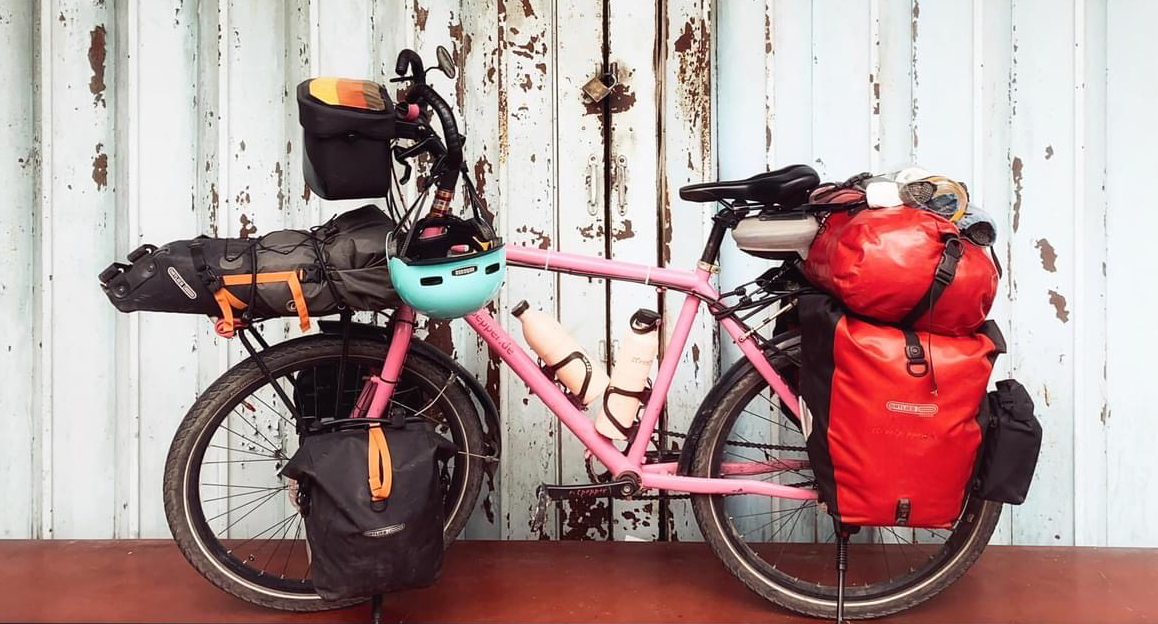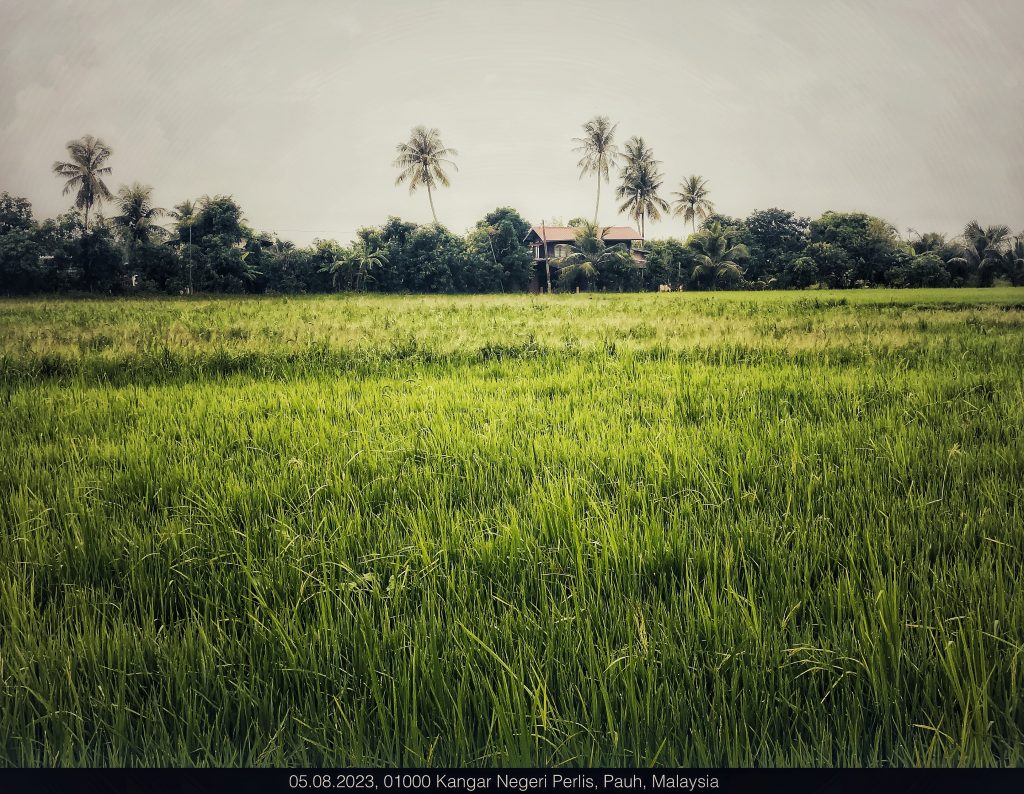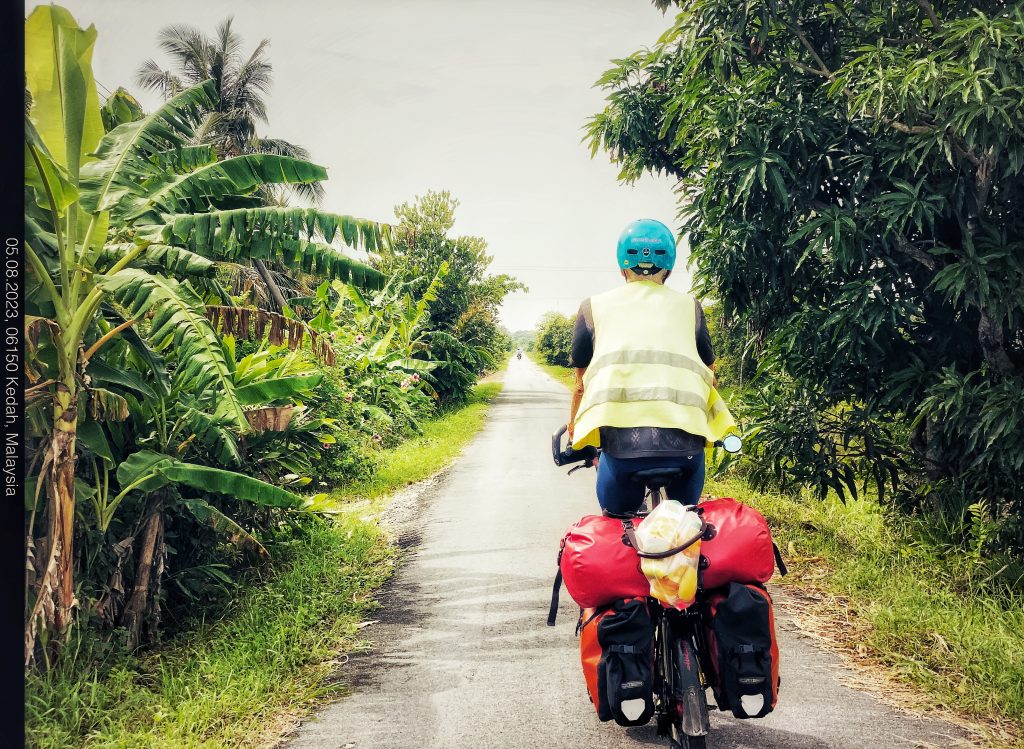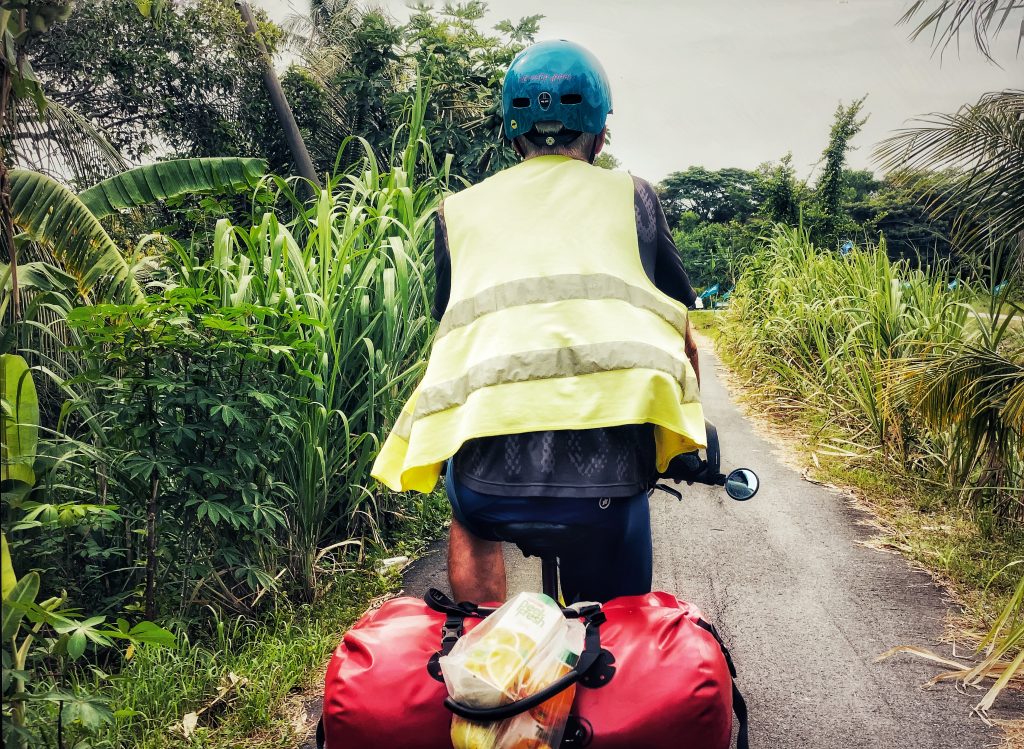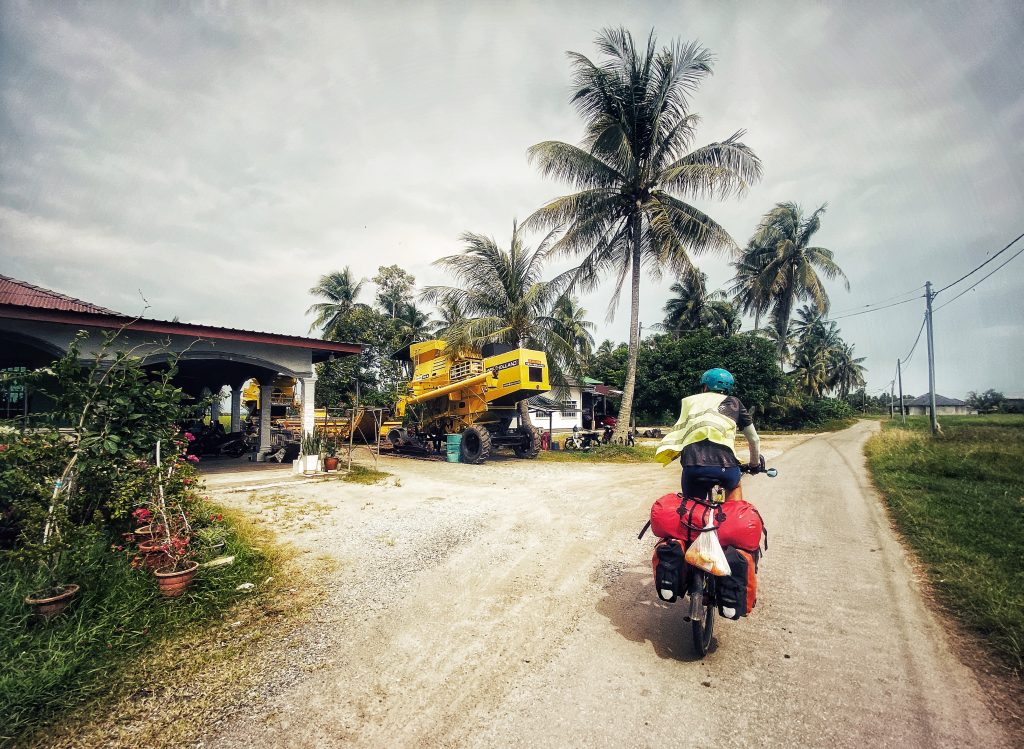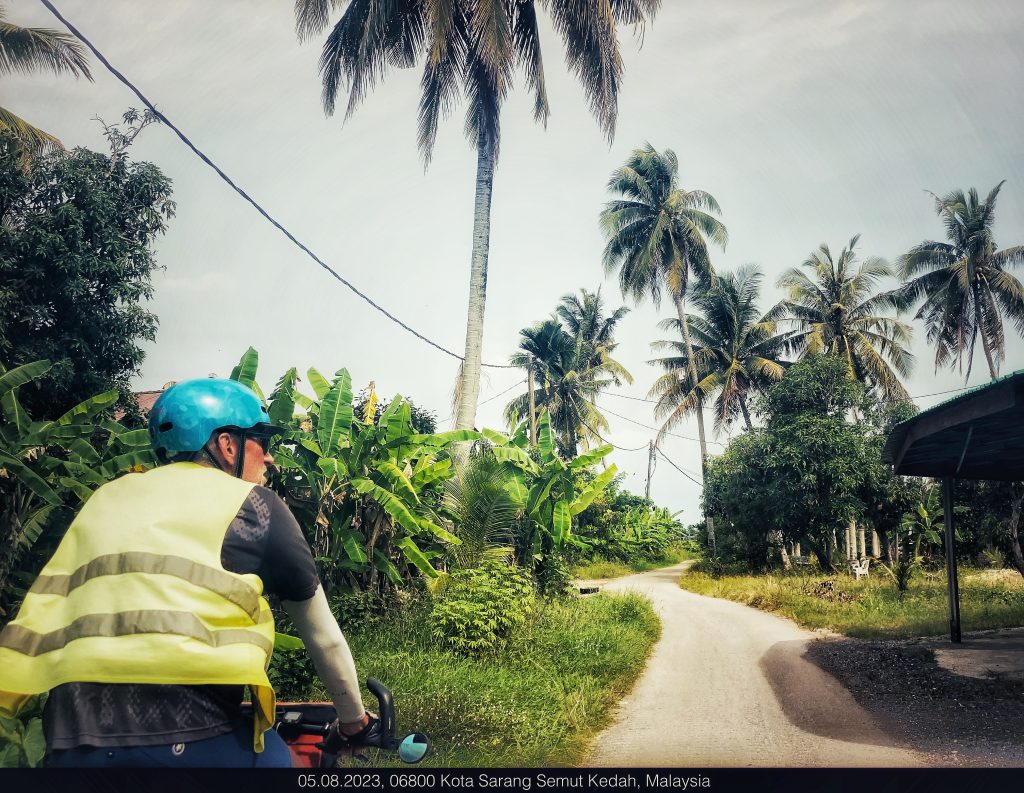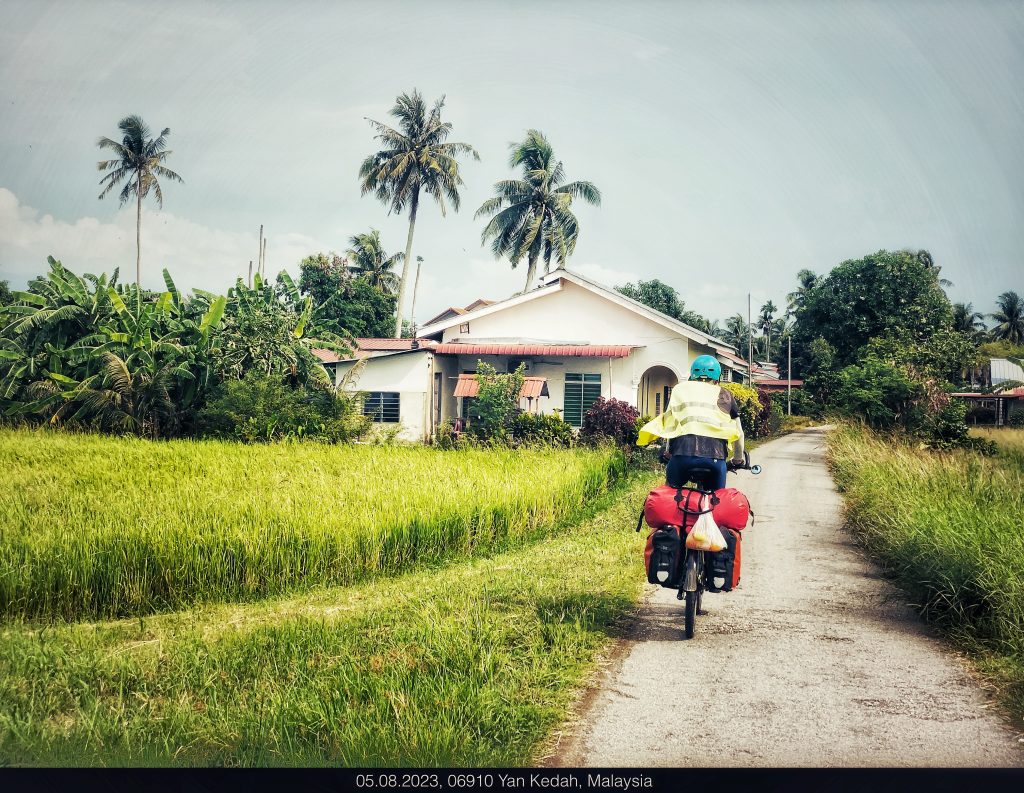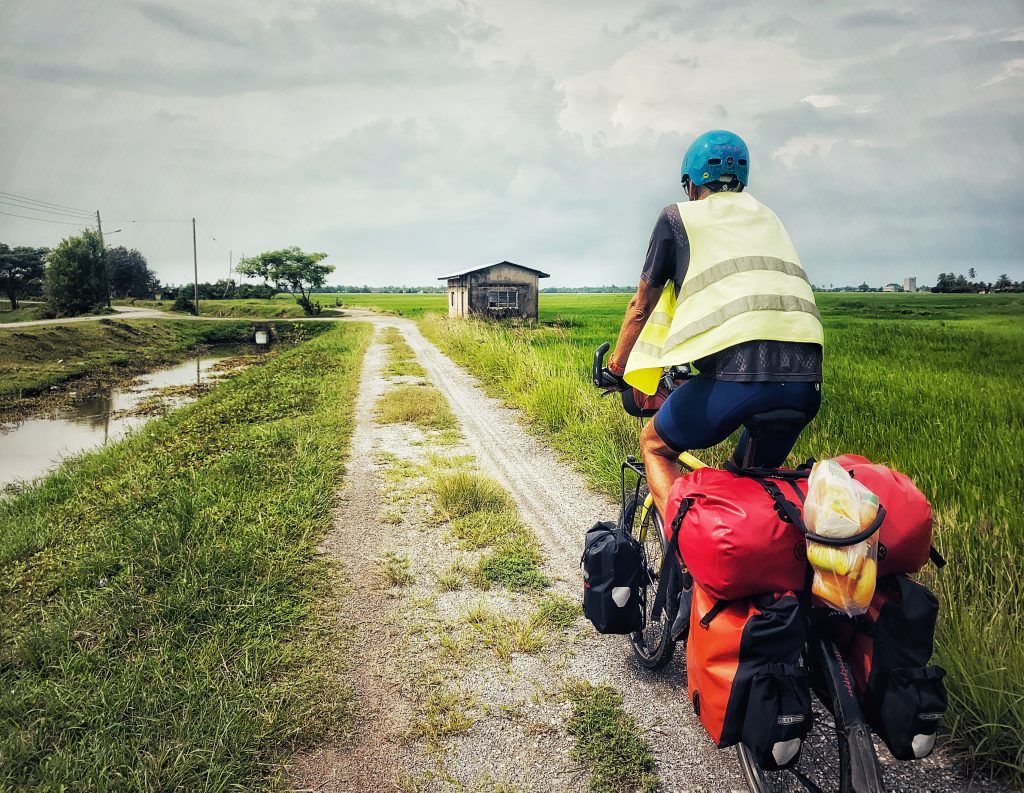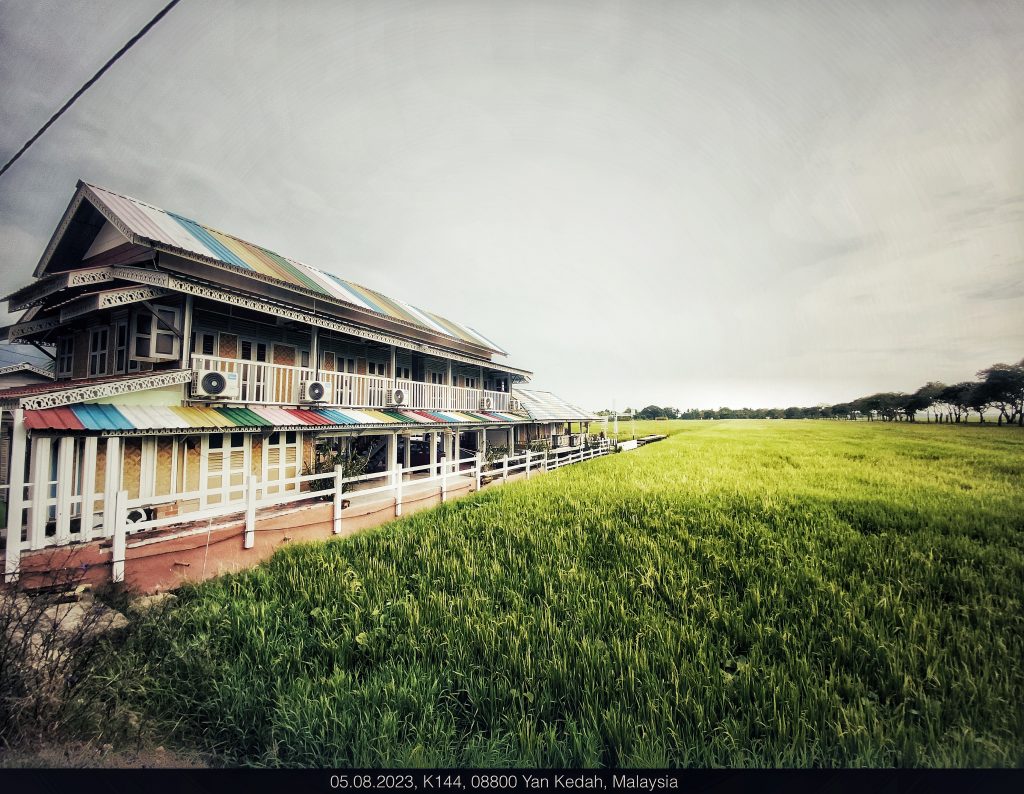“Same same but different” – Actually I wanted to try not to compare…but it happens.
Fascinating boarder crossing
90 days we have now in Malaysia. No complicated and expensive online visa application is necessary. We don’t need to bring a photo to the border crossing to Malaysia and none will be taken. No fingerprints and no annoying questions like “where are you from” or “where do you want to go”. We could have answered anyway only: well, we come from Thailand and want to go to Malaysia. Many other countries want e.g. hotel bookings, which everybody books anyway only briefly over Booking.com and then, if one is in the country, cancels again. “Letters of Invitation” are bought, bank statements are faked and even flights are booked and cancelled again if necessary. So much cheating happens, only to get the visa for a country.
And here Malaysia is different
A quick hello, a look at the passport and then in with the stamp. Welcome to Malaysia. Not any kind of a bribe is necessary. Directly behind the border we exchange our Thai money into Malaysian money in an official exchange office and the ATM also gives us money without charging any fees. Now the SIM card is missing and we get ready for a time-consuming procedure. Going in a shop and 5 min later we each have two new SIM cards for 30 days, 100GB with highspeed for 9 EUR. That was easy.
Cycling direction Kuala Lumpur
We cycle off. First destination aim is Kuala Lumpur, about 500km. After that we want to go on to Singapore, again about 500km.
Different but similar: Malaysia
It’s a strange thing about Thailand and Malaysia, because both are different and yet very similar. For one thing, both are in the Southeast Asia region, have great beaches and nice people. As for life, I would say Malaysia seems even easier. English is spoken much better in Malaysia. Malaysia is a melting pot of cultures and thus we as vegetarians get delicacies from 4 directions at once. There is the Indian food, vegetarian by tradition, the Malaysian, the Thai and the Chinese food.
Since India, I’m a huge fan of Idli.
These white things look like nothing, but are ingenious. And I think they are also really delicious 😊🤣 Not everyone will necessarily agree with me 🤣
Idli is a dish of South Indian cuisine. White, steamed, flat-round cakes made from a fermented dough based on urd beans and rice.
And because there are many Indians in Malaysia, that is actually Malaysian Indians or Indian Malaysians (Malaysian citizens of Indian descent. Most are descendants of those who migrated from India to Malaysia during the British colonization of “Malaysia”),
there is also a lot of Idli. 1 set Idli = 1 EURO including the tea.
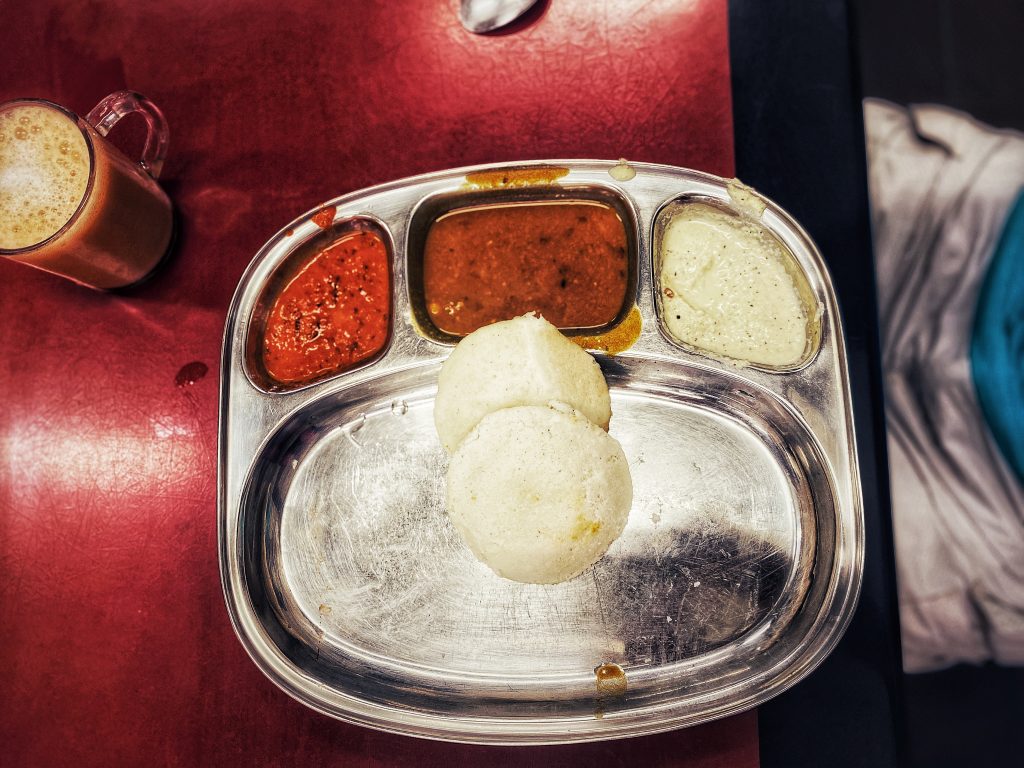
We quickly got used to the new currency. A feeling that we have to pay more somewhere because we are foreigners does not arise. On the contrary, we are invited again more often. This certainly has something to do with the high proportion of Muslims. But that also leads to the fact that Klaus has to regulate everything from time to time. I am sometimes “ignored”. But that happens very rarely.
The roads are quite good, but we miss the extremely wide and thus for us safe side stripe. The traffic, and thus the lack of consideration or maybe I should say “caution”, is similar to that in Germany. But these scary mega pickups have disappeared with the border crossing. Small and middle class cars dominate the streets. The Malays are more curious, want to know more, like to ask how old we are and want a selfie with us much more often.
George Town
Our first days in Malaysia were “same same, but different” and we had again underestimated how exhausting it can be for the brain. So we decided to slow down again and stayed in George Town longer than planned. Rethinking our route, enjoying the first days in the new country and adjusting to what is new.
Where did “same same, but different” come from?
This Thai-English phrase ‘same same, but different’ means something ‚like similar’. Its precise origin is largely unknown. Maybe it’s likely that this construction originally appeared when Thais who were learning English tried to converse with visitors. Today, you’ll hear it quiet often during your travels around Thailand, including by Thais who are fluent in English and use it to be humorous while chatting with overseas visitors.


